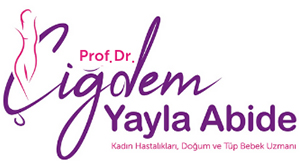IVF
In vitro fertilisation (IVF) is a miracle embraced by modern medicine that opens the doors to a journey full of hope. This method, which was successfully applied for the first time in the world in 1978, came to life in Turkey in 1989. However, the number of couples struggling with infertility (infertility) has gradually increased due to changing living conditions, working women postponing their desire for pregnancy, eating habits and increasing stress.
Today, while the number of applicants to IVF treatment is increasing day by day, success rates are also increasing in the light of technology.
In our country, approximately 50.000 couples apply to in vitro fertilisation treatment for a future full of hope. This figure is a reflection of not only Turkey's but also the whole world's interest and need in this field.
IVF treatment is not only a few steps, but also an emotional journey. Medications, genetic analyses and various procedures are among the factors that affect treatment costs. For this reason, it is important for couples to have a detailed preliminary interview before starting treatment and to be prepared by getting up-to-date price information.
In this article, I will provide information to guide both expectant mothers and expectant fathers through the IVF treatment process...
What is IVF?
In vitro fertilisation (IVF, or in vitro fertilisation) has become an increasingly popular assisted reproduction method. In vitro fertilisation (IVF) is a miracle procedure in which a woman's egg cell and a man's sperm cell meet in a laboratory. The embryo is then implanted in the uterus of the expectant mother and the process continues like a natural pregnancy. This time, however, the initial phase takes place within the walls of the laboratory.
IVF treatment is shaped not only by science and technology, but also by a journey of hope. Regular prenatal check-ups and medical interventions offer support and guidance.
Nowadays, in vitro fertilisation is becoming more and more accessible, and there are many options and avenues of information available to couples at the initial stage. Couples who want to have a baby wonder what IVF means. Therefore, it is important to have a detailed preliminary interview before stepping into the IVF process.
How Many Types of IVF Methods Are There?
The development of methods used in IVF treatment has made great progress. Today, two types of in vitro fertilisation methods are used. Techniques such as IVF and Microinjection (ICSI) are important steps that give hope to couples and increase success rates.
ICSI and IVF: Differences between In Vitro Fertilisation Methods
At one time IVF (in vitro fertilisation) was the mainstay of IVF treatment. Today, however, the microinjection technique known as ICSI is considered a revolutionary step in this field. In microinjection, a sperm cell is injected directly into the egg. This increases the fertilisation rate and the success rate of IVF treatment.
The difference of the microinjectiontechnique from the classical IVF treatment is that fertilisation is carried out in a more direct and controlled manner. This method is a promising option especially for couples with male factor infertility. Today, with the development of techniques used in IVF treatment, the chances of couples having a baby are increasing.
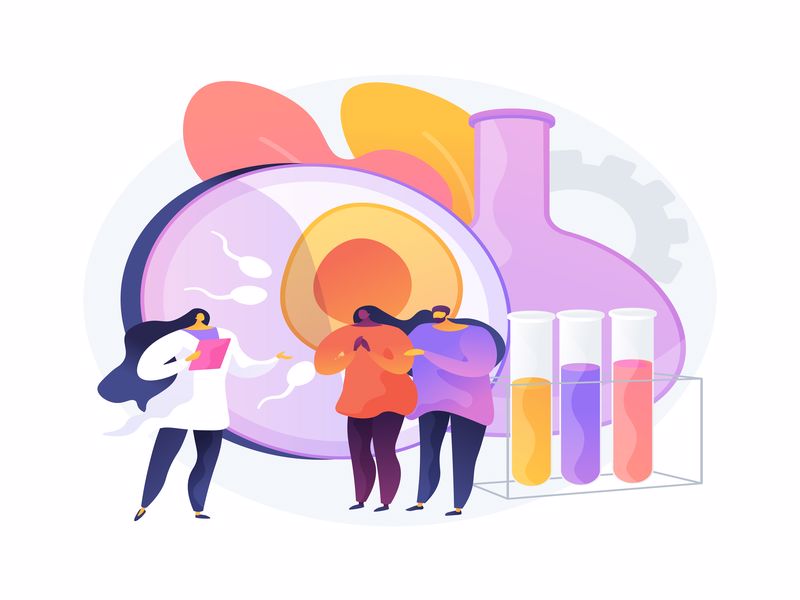
When to Apply for IVF Treatment?
Especially for couples who have difficulty in achieving pregnancy naturally, the time of application for assisted reproductive methods such as IVF is a sensitive issue. Couples must have certain criteria to apply for IVF treatment.
In general, it is recommended to resort to methods such as IVF treatment in case of failure to conceive despite unprotected intercourse for one year. However, this period is six months for women over the age of 35. This is because the fertility potential of women decreases with age and the speed of this process may vary from person to person.
Therefore, if pregnancy does not occur within a period of six months for women over the age of 35, it is important that couples undergo a detailed evaluation in terms of infertility. This process can vary depending on both the woman's age and her health condition.
If pregnancy does not occur within this period of time, the necessary treatment steps should be taken immediately to prevent the loss of time and advancing age. In this way, both the pregnancy concerns and the reproductive capacity of the couples are evaluated in the most effective way and the appropriate treatment process is initiated. Early intervention and professional support are important to increase the chances of success of this process.
How is IVF performed?
How is in vitro fertilisation? The question is an issue that couples who want a child and have not been successful as a result of trials are curious about. IVF treatment is the process of fertilising mature eggs carefully collected in a laboratory environment with sperms that have undergone quality-enhancing procedures under a microscope. This method offers a hopeful solution for couples who have difficulty in having a child.
The treatment process starts with the collection of the eggs, which have been enlarged with some medication and injection treatments, under light anaesthesia. Then, the spermatozoa are subjected to quality-enhancing procedures and combined with the eggs in a laboratory environment.
The resulting embryos are carefully monitored. Depending on the quality of the embryos, the most suitable ones are usually selected on the 3rd or 5th day and transferred to the uterus of the expectant mother. At this point, embryo quality and the health status of the expectant mother are taken into consideration.
In vitro fertilisation is a meticulous process and is guided by an expert team at every step. While this process gives hope to couples, it also requires patience and support. IVF treatment offers a chance to reach a happy result for many couples.
What should be done before IVF?
Before IVF treatment, it is important that the health conditions of the couples are evaluated in detail and necessary examinations are performed. In this way, a suitable ground is created for the treatment process to be successful. Here are a few important steps that couples should consider before IVF treatment:
Infertility Assessment
Infertility is evaluated when couples cannot conceive despite unprotected intercourse for one year. Especially for women over the age of 35, this period should be considered as six months. As a result of infertility assessment, couples may need to be referred to IVF treatment.
Examinations and Tests for IVF
Certain conditions and examinations are required in public hospitals for IVF treatment. These include hormone tests on the 2nd or 3rd day of the woman's menstruation, follicle counting by ultrasound, HSG (Hysterosalpingography) film, spermiogram and blood tests, vaginal culture (not always required). A treatment plan is created according to the results of these tests.
Treatment of Hormonal Disorders
If hormonal disorders are detected as a result of the tests, it is important to treat these conditions. For example, if there is high prolactin or thyroid hormone disorders (TSH, T4, T3), these conditions should be treated. Because hormonal disorders can adversely affect the success of IVF.
Evaluation of Uterine Abnormalities
Uterine anomalies can prevent the embryo from attaching to the uterus. Conditions such as uterine septum, adhesion, T or Y deformity, polyps, fibroids can prevent the embryo from attaching to the uterus in a healthy way and growing. Therefore, they should be treated. In case of fluid accumulation in the tubes, which we call hydrosalpenx in the tubes, the tubes should be ligated at the junction of the tubes with the uterus before IVF. Because this bad fluid that accumulates in the tubes spills into the place where the embryo is attached in the uterus, causing miscarriage or failure of the embryo to attach to the uterus.
Cervical and Breast Cancer Screenings
Since pregnancy will last for at least one year, cervical and breast cancer screenings should be performed before pregnancy. These screenings ensure that the pregnancy process proceeds in a healthy way. Breast ultrasound and mammography are recommended if the woman is over 40 years of age, and breast ultrasound is recommended for women under 40 years of age.
We care about the health of our patients and give them hope and start IVF treatment with our best technological facilities.
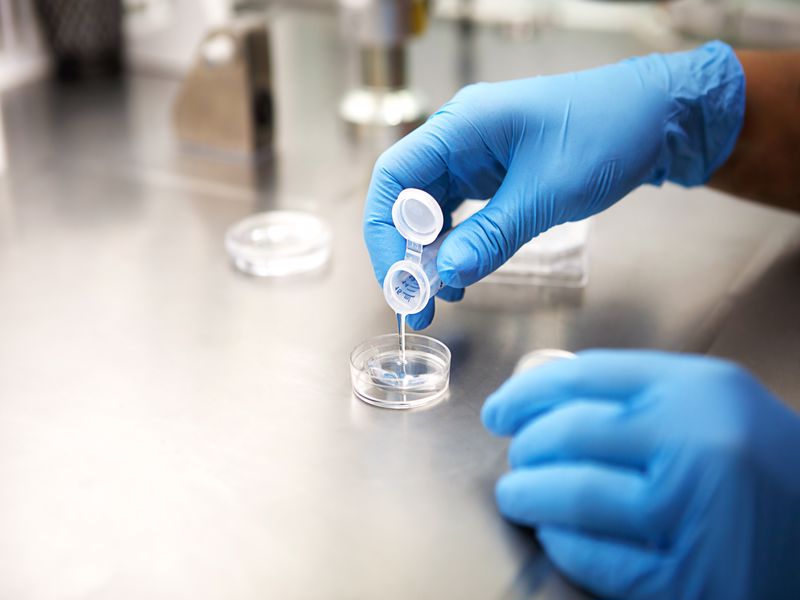
What should be considered during the IVF treatment process?
IVF treatment is a very exciting, but also a stressful process for expectant mothers and fathers. In this process, it is important to support couples emotionally and physically. For the successful completion of this process, there are some rules to be followed and some situations to be considered. First of all, living a healthy life is very important not only for the people who apply for this treatment but for everyone. In fact, this period is a period of opportunity for people to switch to a healthy life. Our recommendations especially in the preparation phase before IVF:
- Pay attention to weight control, body mass index should remain within normal limits. In fact, both overweight and excessive weakness are among the factors that can reduce the chance of conception. Healthy life is important.
- Unhealthy habits should be avoided. If she consumes alcohol, cigarettes and stimulants, she should definitely quit immediately. If there is addiction, they should get rid of this addiction in a healthy way. In the normal pregnancy process, the substances in question can both prevent the formation of pregnancy and adversely affect the development of the baby in the womb.
- Healthy nutrition and packaged products should be avoided. Packaged products defined as junk food, frozen foods and foods containing preservatives should not be consumed because they cause hormonal imbalance in women. Instead, healthy fresh fruits and vegetables should be consumed in season, ‘raw’ nuts containing beneficial fats should be consumed, and fibrous foods should be added to meals.
- Avoid stress factors. Stress can be the cause of not being able to conceive as it is the basis of every disease. For this reason, I usually recommend some relaxing activities to expectant mothers (walking, yoga, listening to music, reading books, etc.).
- Instead of heavy exercises, light exercises that provide relaxation and stretching should be applied.
- Radiation should be avoided.
- Infection should be avoided. Maximum precautions should be taken against epidemics. Care should be taken in crowded environments and attention should be paid to the use and sterilisation of personal belongings in common areas.
- Caffeine consumption should be minimised. Daily consumption of coffee and tea should be limited. Do not drink cola.
- Industrial sugar consumption should be at minimum limits.
- Fruits and vegetables should be consumed after proper washing.
- If there are medicines and supplements recommended by your gynaecologist, care should be taken to use them completely and correctly.
- It is very important to keep the communication between the expectant mother and father strong. Communication between expectant parents is very important in the IVF treatment process. Supporting each other and deciding on the process together increases the success of the treatment.
- It is important for the father-to-be to avoid harmful habits, to eat healthy and to follow the recommendations of the urologist completely.
- Perhaps one of the most important precautions is to have dental care before IVF. Pregnancy losses may occur due to dental infection after embryo transfer. Therefore, it is important to check with a dentist before IVF treatment.
A healthy lifestyle is extremely important before IVF, during IVF treatment and during pregnancy. Implementation of the above-mentioned items can increase the chances of successful IVF treatment and help the pregnancy process to progress in a healthy way. Therefore, it is important for couples to pay attention to these recommendations and adopt healthy living habits.
IVF Treatment Stages
IVF stages consist of 4 stages: egg growth, egg collection, embryo creation (fertilisation) and embryo transfer.
The first stage in the IVF stages is the egg enlargement and egg monitoring stage. At this stage, treatment is started with IVF injections for egg development and egg enlargement in IVF.
- Since we perform personalised treatment in our clinic, needle or pill treatment types and doses of needles are adjusted according to the person.
- This phase lasts 8-10 days on average, but it can also last up to 14 days.
- The eggs are monitored at certain intervals by ultrasound.
- When the eggs reach a size of 16-20 mm, the last cracking injection is performed.
- 34-36 hours after the cracking injection, the eggs are collected painlessly under light anaesthesia (sedoanalgesia).
IVF egg collection is the second stage. The patient should fast for 6 hours, like fasting, without food or water because she/he is anaesthetised. IVF egg collection takes approximately 15-20 minutes.
- Eggs are collected under anaesthesia in the embryology laboratory.
- The eggs are collected one by one by vaginal ultrasound with the help of the needle on the ultrasound and delivered to the embryology doctor.
- IVF egg collection is a painless procedure, but afterwards there may be mild groin pain like menstrual cramps and this pain is relieved with painkillers.
- At the same time, the father-to-be gives sperm by masturbation method.
- The sperms taken from the father-to-be are extracted, the best quality sperms are selected and injected into the eggs under a microscope. This process is called microinjection (ICSI).
The third stage is the IVF fertilisation stage, the embryo formation stage, which starts immediately after the egg collection stage. Fertilised eggs, i.e. embryos, are monitored for their development. On the 1st day, it is checked whether there is fertilisation. The development of the fertilised embryos is checked again on the 3rd and 5th day. IVF day 3 embryo transfer or IVF day 5 embryo transfer varies according to treatment plans.
IVF embryo transfer is the last stage of the IVF process. Fresh embryo transfer or frozen embryo transfer is a personalised treatment plan.
- Fresh embryo transfer is preferably performed on the 3rd or 5th day.
- It is the most important stage of the IVF process. The embryos obtained are transferred into the inner lining of the uterus (into the uterine cavity, the fertilisation bed) with the help of a thin catheter.
- Embryo transfer is performed under ultrasound guidance because it requires great care and attention.
- Experience is very important.
- Anaesthesia is not required, it is a painless procedure.
After IVF embryo transfer, the wait for happy news begins. The BhCG hormone is checked in the blood 10-12 days after embryo transfer to determine whether pregnancy has occurred. If it is above a certain value, the good news is given to our couple.
IVF pregnancy calculation is calculated differently from the pregnancy calculation obtained by natural ways. The date of embryo transfer and the day of embryo transfer are important when calculating. If you want to calculate your IVF pregnancy week, you can use our IVF pregnancy calculation page on our website.

Who can undergo IVF?
There are some important issues to be considered about who should apply for IVF treatment and in which cases this treatment method should be preferred.
Couples who cannot conceive naturally should consult a doctor after a while. Defining infertility is very important for the treatment plan. Couples under 35 years of age may face the diagnosis of infertility if they cannot conceive despite unprotected intercourse for 1 year (this period is 6 months over the age of 35). In this case, some tests are applied to couples. Hormone tests, ovarian reserve tests, medicated uterine film to check whether the tubes are blocked, sperm test (spermiogram) are among these tests.
According to the results of the tests, it is determined which treatment should be applied to the couples. These treatments include ovulation supportive treatments, vaccination or IVF treatment. IVF treatment is a treatment method with the highest success rate in solving infertility problems.
To whom is in vitro fertilisation, which is the method with the highest chance of success among couples with infertility complaints, performed? The following are among the conditions in which IVF treatment should be applied;
- Blocked tubes
- Low ovarian reserve
- Early menopause
- Diagnosis of unexplained infertility
- Hormonal problems that prevent egg development, release or embryo implantation (e.g. polycystic ovary disease)
- Problems such as vaginismus in women or premature ejaculation in men
- Advanced female age (especially over 38 years)
- Cancer patients undergoing chemotherapy or radiotherapy, or women undergoing abdominal surgery that will adversely affect the ovaries
- Couples who do not get results with other treatment methods
- Problems with sperm analysis in men
- Couples with genetic problems or at risk of passing on diseases to their children
Obstruction in the tubes; In naturally occurring pregnancies, egg and sperm meet in the tubes and fertilisation occurs in the tubes. Then the fertilised egg moves towards the fertilisation bed where it settles and starts to grow. In case of obstruction in one of the tubes, fertilisation can occur if the other tube is open, but in case of obstruction in both tubes due to conditions such as previous infection or endometriosis, fertilisation cannot occur and IVF is recommended. If the tubes such as hydrosalpinx, pyosalpinx are swollen due to filling with fluid or inflammation, disconnecting the tube from the uterine cavity (inner membrane, fertility bed) and then performing IVF will increase the chance of pregnancy.
Low ovarian reserve; Low ovarian reserve is an expected condition in advanced female age. However, genetically low ovarian reserve can also be seen at an early age. Especially after the age of 37, there is a rapid decline in ovarian reserve. Ovarian reserve may also decrease after surgery in women who have undergone ovarian surgery for diseases such as ovarian cancer or endometrioma. The ovaries may also be affected after chemotherapy or radiotherapy and the reserve may decrease due to medication and radiation. Therefore, we recommend egg freezing before surgery or chemotherapy/radiotherapy.
Ovarian reserve or the number of follicles is determined by ultrasound. In the presence of low ovarian reserve, we recommend IVF treatment.
Unexplained infertility; When a factor that may cause infertility is not found in the tests performed in men and women, this situation is called ‘unexplained infertility’. In this case, vaccination treatment is recommended for the first 2 times. However, after unsuccessful vaccination attempts or when the inability to conceive exceeds 2 years, we can also recommend proceeding directly to IVF treatment.
Polycystic ovary disease can cause infertility by causing ovulation problems. As a first step in the treatment process, medications or other ovulation-supportive methods are used to ensure ovulation. However, in case of failure despite these treatments, vaccination treatment is usually recommended at least 2 times. After two unsuccessful vaccination attempts, IVF treatment may be recommended.
Vaginismus in women or premature ejaculation problems in men; In sexual dysfunctions such as vaginismus, where women experience contractions during sexual intercourse or premature ejaculation problems in men, the possibility of conception by natural means may decrease. In this case, assisted reproductive techniques such as IVF treatment may be recommended to increase the chance of conception.
Advanced female age; Advanced female age refers to a period in which the decline in the quality and number of eggs accelerates. Therefore, IVF treatment is recommended as one of the most effective assisted reproductive techniques to increase the chances of conception, especially in infertile women aged 38 and over. Since there is a race against time in advanced ages, it is important to start treatment quickly. Therefore, the most appropriate treatment option for infertile women in advanced ages is usually IVF treatment.
If there is a problem in sperm analysis in men; In vitro fertilisation is recommended for those who have sperm count less than 5 million/ml, low or no motile sperm count, serious deformity in sperms in sperm analysis performed twice at least 1 month apart.
In men witha history of undescended testis; sperm parameters are usually affected and in this case IVF treatment may be recommended. Testicles that are in the abdominal cavity before birth should descend into the scrotum (bag) after birth. However, if this descent does not occur after birth, sperm cells exposed to high temperature in the abdomen may lose their vitality and azoospermia (no sperm) may develop. In this case, sperm can be extracted from the testicles with the help of a needle and in vitro fertilisation method can be applied.
IVF treatment can be applied if the man has a history of vasectomy, retrograde ejaculation, hormonal disorders, chemotherapy or radiotherapy or testicular surgery is required.
Couples with genetic problems or at risk of passing the disease to their children: IVF treatment can be an important option for couples with genetic problems or at risk of passing diseases to their children. Embryo genetic examination is recommended especially for women over the age of 40, or for couples who have had two previous unsuccessful IVF attempts, or for couples with recurrent miscarriages. For couples who do not have infertility problems but have genetically inherited diseases, it is recommended to create embryos by IVF method and perform embryo genetic examination in order to have a healthy baby. Therefore, in vitro fertilisation treatment is recommended for these couples.
Why is IVF performed?
Every couple has the desire to have a child. However, one out of every ten couples is faced with infertility, that is, they cannot conceive naturally. Before IVF treatment is recommended, factors that may cause infertility are investigated. Treatable causes are treated, and assisted reproductive techniques are used in cases where treatment is not possible or when the underlying cause cannot be found. Among the causes of infertility; blockage in the tubes, impaired sperm parameters, hormonal or genetic problems, ovulation problems, low ovarian reserve and in these cases IVF treatment is recommended. However, IVF treatment is not recommended for every couple. In case of unexplained infertility or ovulation problems due to hormonal causes, treatments such as ovulation-inducing drugs or vaccination are tried first. When vaccination fails twice, IVF treatment should be considered.
When is IVF performed?
Before deciding on IVF treatment, we carry out a detailed preliminary interview with our couples. During this interview, we analyse the couple's medical history, including their general health status, cervical cancer screening tests, and recent tests, hormone test results. Afterwards, we perform a gynaecological examination and create a treatment plan, and on the 2nd or 3rd day of menstruation, we expect our couple to start IVF treatment in our clinic.
IVF treatment is started on the 2nd or 3rd day of menstruation. In the ultrasound performed on these days, the number of follicles and the uterine wall are evaluated, the treatment plan is determined according to the age, weight, previous treatments and the number of follicles of the expectant mother and IVF treatment is started immediately. The treatment is sometimes started with injections and pills can be added to this treatment when necessary.
In some patients, treatment may be started outside the 3rd day of menstruation. For example, in patients requiring urgent chemotherapy or surgery, treatment is started immediately and eggs are collected as much as possible.
We apply a personalised treatment plan in IVF .
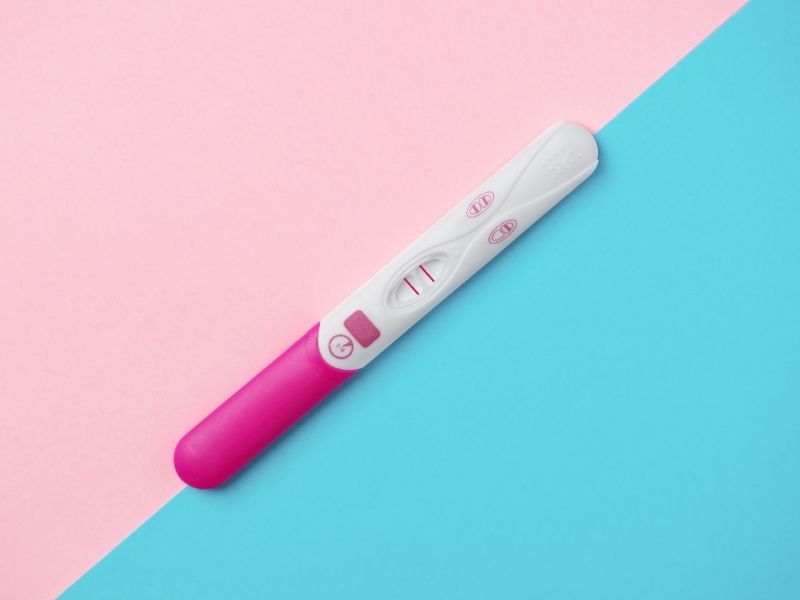
What are the Drugs Used in IVF Treatment?
IVF treatment should be applied specifically for each patient and different medications can be used at each stage. IVF medications can be administered under the skin in the form of injections, intramuscularly, orally as pills or vaginally as suppositories. Especially in in vitro fertilisation treatment, injections given through the navel are usually administered under the skin on the sides or below the navel, at a distance of about 2-3 fingers. Some of the drugs used in IVF treatment are as follows:
- Egg enlargement drugs,
- Drugs that make the egg hatch,
- Drugs used after embryo transfer,
- Antioxidants and vitamin supplements.
Egg Growth Drugs
The first stage of IVF treatment is the development of the eggs. In this process, the patient's weight, age and previous treatment history are taken into consideration and egg-enhancing drugs are determined. These drugs are usually administered in the form of injections. Treatment with egg-enhancing injections may worry patients, but in our clinic, the needle application is explained in detail with the IVF nurse. We also provide our patients with videos showing them how to inject themselves. With the help of the nurse's guidance and the videos, our patients can easily administer their injections.
There are various brands of egg developer injections on the market, but each patient's treatment may differ. In addition to egg-developing injection treatments, some patients are also given treatments in the form of oral pills.
Drugs that Crack Eggs
The time of administration of IVF egg-cracking injections (hcg-containing injections) is very important. When the eggs reaching a size of 18-20 mm are detected in the egg follow-up performed by ultrasound, the egg-cracking injection is performed as the last injection. Egg collection should be performed 34-36 hours after the egg-cracking injections. Egg collection should be performed before the eggs hatch. The time of the cracking injection is very important in terms of egg quality and number.
Medications Used After Embryo Transfer
The embryo's firm attachment to the uterine wall is one of the critical steps in IVF treatment. For this purpose, some medications used after IVF transfer can increase the chance of the embryo successfully attaching. These medications, which usually contain progesterone, can be taken by injection, suppository or orally. Progesterone increases the chance of the embryo attaching by ensuring the maturation of the uterine lining. Especially in frozen embryo transfers, estrogen-containing medications are also used after embryo transfer. Estrogen increases the thickness of the uterine lining and increases the chance of the embryo attaching.
Some medications that relax the uterine muscles can also be used during IVF embryo transfer. These medications are administered to the patient in serum and help prepare the uterus.
In frozen embryo transfers, uterine preparation begins on the 2nd day of menstruation. Estrogen treatment continues until the thickness of the uterine lining is at least 7 mm. On the 13th day of treatment, when a thickness of at least 7 mm is reached, progesterone treatment is started and frozen embryos are thawed and embryo transfer is performed on the 6th day. After embryo transfer, medications are used and treatment is continued.
In patients who experience recurrent IVF failure, there are different treatment options to increase embryo implantation. One of these is the application of certain treatments that increase cell activity in the uterine lining before or after embryo transfer. These treatments aim to support the successful implantation of the embryo by improving the quality of the uterine lining. For example, medications or hormones that increase the thickness of the uterine lining can be used. In addition, special nutritional supplements or supportive treatments can be applied to help improve the quality of the uterine lining. These treatments can positively affect IVF success by increasing the chances of embryo implantation. However, since each patient is different, a detailed evaluation and expert advice are necessary to determine which treatment is most appropriate.
Antioxidant and Vitamin Supplements
The use of vitamin supplements is very important during the IVF treatment process and should be managed correctly. Multivitamin supplements can be beneficial, especially for individuals who have problems with sperm and egg quality. However, the use of these supplements should be under the supervision of a doctor.
Vitamin supplements used before and during IVF treatment are preferred to provide the body with the necessary nutrients. For example, deficiencies in nutrients such as folic acid, iron, and vitamin D can affect sperm and egg quality and therefore reduce the chance of pregnancy.
However, since the needs of each individual are different, the dosages and contents of vitamin supplements should be determined individually. Therefore, it is important to consult a health professional before using vitamin supplements. Doctors recommend vitamin supplements that are appropriate for the couple's needs and current conditions and adjust the doses if necessary.
Eating habits are also of great importance. A balanced and varied diet can naturally increase the chance of pregnancy by providing the nutrients the body needs. Therefore, it is also important to review eating habits and follow a healthy diet program before IVF treatment.
The maturation process of the egg and sperm usually begins approximately 3 months before treatment. The use of micronutrients such as antioxidants can positively affect the clinical results of IVF treatment. Therefore, it is recommended that certain vitamins and minerals be taken into consideration during the treatment process. These include folic acid, iron, coenzyme Q10 (CoQ10), vitamin D, vitamin E, omega-3 fatty acids, zinc, magnesium, DHEA and antioxidants. These supplements can improve sperm and egg quality and increase the chance of pregnancy.

What to Do After IVF Transfer?
There are some important things to consider after IVF transfer, but it will be more positive for you to go through this process without panicking or stressing. Our suggestions to help you get through this process in a healthy way;
Since we want you to be urinating before IVF transfer, you may need to go to the toilet after IVF transfer. In this case, we recommend that you use a bedpan in your bed if necessary.
We recommend that you lie down and rest for 20-30 minutes after embryo transfer. However, according to studies, it has been reported that lying down and resting for 30 minutes does not make a difference in terms of pregnancy chances. In other words, it is not necessary to lie in bed for 30 minutes after IVF transfer.
We recommend that you stay away from stress as much as possible during the treatment process and after IVF transfer. You can be happier by distracting yourself and focusing on other things. You can engage in hobbies such as reading books and handicrafts. Starting work as soon as possible can be good for distracting yourself, if you do not have a heavy job. Talking about this issue with your family can increase stress, so do everything possible to avoid stress.
We recommend that you rest and avoid exercise for 2-3 days after embryo transfer. You can do your daily activities without being tied to the bed, but we recommend that you avoid heavy exercise.
- You can climb stairs and pray standing after IVF transfer.
- You can take a warm shower on the day of embryo transfer, but we do not recommend hot showers.
- We do not recommend sexual intercourse after embryo transfer. We do not recommend sexual activity, especially in the first 3 days.
- It is necessary to establish a healthy diet and quit bad habits such as alcohol and smoking.
- Drinking herbal teas or consuming light teas can help you relax. However, we recommend that you do not use special herbal mixtures.
- We recommend that you wear a mask when necessary and avoid crowded environments to reduce the risk of infection.
- If you want to travel after transfer, we recommend that you rest for at least 1 day.
There may be a slight brown-colored implantation bleeding in the 5th-6th days after transfer. If this bleeding is light red and excessive, we recommend that you consult your doctor.
After IVF transfer, needle treatment should be continued. The injections and pills given until the pregnancy test result is obtained in the blood 10-12 days after embryo transfer. Progesterone injections and progesterone suppositories are continued until the 9-12th week of pregnancy. In frozen transfers, we continue the estrogen pills in addition until the baby's heartbeat is seen. The medications used in each patient are different, so it is important to continue the treatment and you should use the medications recommended by your doctor regularly.
By taking these recommendations into consideration, you can go through the post-transfer process more healthily and comfortably.
What is the Attachment Process After Transfer?
Embryo transfer is one of the most important stages of IVF treatment. At this stage, the fertilized embryo is placed in the uterus. After this, the question that everyone is curious about is: "Will the embryo attach to the uterus?" Attachment is the beginning of pregnancy by the embryo settling into the uterine wall. This stage is an extremely sensitive and critical period.
We know that IVF treatment is a very challenging process for you couples who have been wanting to have a baby for a long time, both financially and spiritually. The process of the embryo attaching to the uterine wall after the embryo transfer stage, which is one of the most important steps of your IVF process, represents the beginning of a hopeful wait.
What are the Symptoms of Attachment After IVF Transfer?
The symptoms of attachment after IVF transfer are very curious. In fact, there are no clear symptoms to understand whether the embryo has attached to the uterine wall. Each woman's experience may be different. The symptoms I will mention below may mean that the embryo has attached after IVF treatment. The absence of these symptoms does not mean that the embryo has not attached.
Groin Pain or Cramps: Women who conceive naturally may also experience groin pain or cramps at first, as if they were about to have their period. Some women may feel abdominal pain, groin pain, and cramps as a symptom of IVF implantation.
Light Spotting or Light Vaginal Bleeding: Light bleeding (in the form of brown discharge) from the vagina may be seen when the embryo attaches to the uterine wall, known as implantation bleeding. This is also called ‘implantation bleeding’ or ‘post-transfer implantation bleeding’ and may be a sign of implantation. No bleeding after IVF transfer does not mean that implantation is not occurring.
Weakness and Fatigue: The increase in the progesterone hormone, which increases especially during pregnancy, can cause weakness and fatigue.
Dizziness and Headache: Headaches and dizziness may be seen due to increased hormone levels during pregnancy and may be a symptom of embryo implantation.
When Should a Pregnancy Test Be Performed in IVF?
A high BhCG hormone level in the blood after 10-12 days of the embryo transfer process is a definite sign of pregnancy. In healthy IVF pregnancies, it is expected that the BhCG level in the blood after 2 days will increase by an average of 2 times compared to the previous value. If there is this increase, it means that the IVF pregnancy is going well. It is very important to stay away from stress, be patient and think positively during this process.
If IVF does not work, how many days will it take to get your period?
Some medications containing estrogen and/or progesterone are recommended to increase the chance of embryo implantation after IVF embryo transfer. These medications are continued until the 10-12th day after embryo transfer. If the pregnancy test in the blood is negative, that is, if the patient's embryo transfer has failed, these medications are stopped. Menstruation occurs within 1 week after stopping the medications.
IVF Success Rate
IVF success is not just a positive pregnancy test, but actually a journey that ends with going home with a baby in your arms. In this treatment where many factors are effective, the most important one is the woman's age. Among the factors that affect the success of IVF treatment, we can list the following;
- The doctor's IVF experience and surgical experience
- Number of eggs
- Egg quality
- Ovarian reserve
- Sperm count, sperm movement, sperm morphology
- Technology used in the embryology laboratory
- Embryo transfer technique
The woman's age plays a critical role in IVF success. As age increases, the number and quality of eggs decrease. Therefore, the number of eggs collected during the IVF treatment process and the quality of embryos also decrease. The IVF success rate also decreases as the woman's age increases.
As the woman's age decreases, the IVF first-trial success rate increases. While the IVF success rate is generally around 50-60% in women under the age of 35, this rate can drop to 15-20% over the age of 40. However, in cases where the woman's age decreases, IVF success rates can increase. For example, the first IVF attempt success rate between the ages of 38-40 can be around 30%.
It is important to create the maximum number of embryos for good quality embryo transfer. As the number of eggs collected during IVF treatment increases, the number of embryos formed also increases, which can increase the IVF success rate. The pregnancy rate achieved with a good quality embryo transfer is usually around 60-70%.
Sperm movement and sperm shape disorders examined in sperm analysis can also affect the success of the IVF attempt. In cases of advanced sperm shape disorders, the formation of quality embryos may be difficult and embryos may have difficulty developing, and embryos may not progress beyond Day 3. Therefore, it is important to examine sperm quality in detail to increase the success rate in the second IVF attempt.
A detailed examination and additional treatment recommendations may be required for couples experiencing repeated IVF failures. After three or more unsuccessful IVF attempts, the couples' situation should be re-evaluated and a different treatment approach should be adopted if necessary.
How to Get Sperm from a Man in IVF Treatment?
In order to obtain quality embryos in IVF treatment, sperm quality is as important as egg quality. Adequate sperm quality is vital for successful fertilization and embryo development. Therefore, the process of collecting and preparing sperm should be managed meticulously.
The semen taken from the man is obtained by masturbation in special rooms, by ejaculation. The liquid that the man gives by ejaculating and contains sperm is called semen (pre-ejaculation). The name and surname of the sample owner are written on the container containing the semen. This semen sample is subjected to special processes in the laboratory, and the highest quality and most mobile sperm are selected. The semen sample is usually taken after a period of sexual abstinence lasting 3-5 days in order to increase the quantity and quality of sperm. During this period, the aim is to avoid sexual intercourse and allow the sperm to accumulate and increase its quality.
However, in some cases, no sperm may be found in the semen sample or the sperm count may be very low (azoospermia). In this case, surgical sperm extraction may be required. Some of these methods are MESA (Epididymal Sperm Aspiration Under Microscope), PESA (Percutaneous Epididymal Sperm Aspiration), TESA (Testicular Sperm Aspiration) and TESE (Testicular Sperm Extraction).
Sperm samples taken with the TESE method can be frozen and used in future IVF attempts. This method can be used in cases of azoospermia or after unsuccessful IVF attempts. The urologist usually performs this surgical procedure under anesthesia and collects the sperm.
These surgical methods are used to increase the success of IVF treatment in men with sperm quality problems and can help improve embryo quality. In this way, more successful results can be achieved in IVF treatment.
- MESA (Epididymal Sperm Aspiration Under the Microscope)
- PESA (Percutaneous Epididymal Sperm Aspiration)
- TESA (Testicular Sperm Aspiration)
- TESE (Testicular Sperm Extraction): Sperm samples obtained with the TESE method can be frozen and used after unsuccessful in vitro fertilization attempts.

What are the risks of IVF treatment?
IVF treatment is a method used by many couples in the hope of having a baby, but as with every medical procedure, it also carries some risks. Potential risks of IVF treatment:
Side effects of drugs used in IVF treatment: The use of hormonal drugs can cause side effects such as discomfort, headache, and abdominal bloating in some women.
Risk of multiple pregnancy: Multiple pregnancies can occur as a result of more than one embryo successfully implanting. Multiple pregnancies can increase the risk of premature birth and create additional difficulties for the health of the babies.
Possible side effects of embryo transfer: Although rare, complications such as infection or bleeding can occur during embryo transfer.
Risk of miscarriage: The risk of miscarriage in pregnancies resulting from IVF treatment may be slightly higher than normal pregnancies.
Risk of ectopic pregnancy: An ectopic pregnancy can occur if the embryo develops outside the uterus, usually in the fallopian tubes. This situation may require urgent medical intervention.
Heterotopic pregnancy: Although it is a rare condition, when an embryo develops in the uterus after IVF treatment, another embryo develops in the fallopian tubes at the same time, which can lead to a heterotopic pregnancy.
Side effects that may occur during egg collection: Complications such as bleeding, infection or internal organ damage may rarely occur during egg collection.
Congenital disorders: In pregnancies obtained as a result of IVF treatment, there is a risk of congenital disorders, as in normal pregnancies.
Ovarian hyperstimulation syndrome: Rarely, ovarian stimulation syndrome may occur as a result of excessive stimulation of the ovaries. This condition may manifest itself with symptoms such as abdominal pain, bloating and shortness of breath and can be serious.
Risk of ovarian torsion (rotation of the eggs around themselves): Ovarian torsion, which is the interruption of blood flow due to the rotation of the ovaries, is a rare complication that requires urgent medical intervention.
Risk of damage to abdominal organs: Rarely, complications that may damage the organs in the abdomen may occur during the egg collection procedure.
Before starting IVF treatment, it is important for couples to consider these potential risks and discuss the risks and benefits with their doctor. Because every patient is different, the risks are individualized and the treatment plan should be tailored accordingly.

What to Consider When Choosing an IVF Center in Istanbul?
When choosing an IVF treatment center in Istanbul, it is important to focus on three important factors:
- the doctor's experience
- the technological equipment of the laboratory
- the attention they will show you
For a successful IVF treatment, the guidance of a specialist doctor, the technological support provided by a quality laboratory and a team that will support you during the treatment process are of great importance. Choosing the right center by considering these factors can increase your chances of success and make your treatment process safer and more effective.
IVF treatment is an important step in making the dream of having a child a reality. However, having the right information and the right support is very important in this process. We are happy to be with you and guide you in every step you and your partner may need regarding IVF treatment.
IVF treatment is a method developed to find solutions to couples' reproductive health problems. With this treatment, sperm and eggs are brought together in a laboratory environment and the fertilized egg is placed in the uterus, increasing the chance of pregnancy.
When choosing an Istanbul IVF center, it is important that it has been in operation for a long time, applies treatment methods accepted by world standards, has the latest technology and ensures success with effective teamwork.
In our contracted IVF center, we offer you the best service with a modern laboratory managed by expert physicians and an experienced team. We do our best to achieve the most effective and reliable results by progressing with you in every step of the treatment.
Before you come to our clinic, we can arrange a preliminary consultation appointment. In this consultation, we will explain the treatment process step by step, answer your questions and determine the most appropriate treatment plan for you. We will provide you with a relaxing environment, ensure that you understand the treatment process and feel supported.
Remember, IVF treatment is an important step for the health and happiness of you and your partner. We are waiting for you at our center and would be happy to be with you on your journey to have a child.
IVF Prices
The biggest concern of couples considering IVF treatment in Istanbul in 2024 is IVF costs and total expenses. It is not possible to give a definitive IVF price for 2024. IVF treatment prices vary depending on the patient's general health status, treatment methods to be used, treatment plan, and the technological equipment and quality of the staff used in the clinic. Therefore, IVF treatment prices in 2024 will vary depending on the IVF centers.
IVF treatment is a complex process that requires patience and careful follow-up, where mutual trust is important. In this process, we would like to guide you in experienced centers where high technology is used in Istanbul to help you achieve your dreams. It will be a great pleasure for us to progress with you and support you on this path.
The IVF price in Istanbul in 2024 varies. The technological equipment used, professional team and additional procedures (embryo genetic examination, embryo freezing, pool method, embryo glue, macrophage vaccine, etc.) affect the IVF cost.
Yes, the IVF cost in Istanbul may vary depending on the additional applications made in IVF treatments. There is no additional payment required for the ICSI (microinjection) method routinely applied in IVF treatments in Turkey.
You can call our clinic in Istanbul Ataşehir to get detailed information about 'What is IVF' or 'IVF treatment' and 'IVF Price' and trust the experience and interest of Assoc. Prof. Dr. Çiğdem Yayla Abide and her team for all procedures.
Fill out the IVF Treatment Appointment Request Form!

IVF treatment can be the beginning of a journey full of hope for couples who want to have a child. However, this process also raises many questions. During the IVF process, couples may have many question marks in their minds: Which steps should we follow? How much does the treatment cost? What is the chance of success? How long will this treatment last? Answers to all these questions enable couples to enter the IVF treatment process in a more prepared and conscious manner. IVF treatment gives the chance to turn the dream of having a child into reality with the technological and scientific opportunities offered by modern medicine. In this article, I will clarify some frequently wondered questions about the IVF treatment process.
Read more
Embryo genetic analysis; It is the examination of the chromosomal structure of embryos formed in IVF.
Read more
Fibroids are common benign tumors in the female reproductive system and in some cases can make pregnancy difficult. Especially for women undergoing IVF treatment, the presence of fibroids can affect embryo implantation and the pregnancy process. However, it should be noted that fibroids do not always negatively affect IVF success.
Read more
Our Affiliated IVF Center in Istanbul promises hope to couples by increasing success rates with IVF treatments that are becoming more and more innovative every day. Along with the developments in reproductive technologies, some new treatments are also used today. These treatments include: Piezo-electric stimulation, ROSI technique, PRP, Exosome Therapy, Preimplantation Genetic Diagnosis (PGT), IVF Artificial Intelligence Use, Embryo Glue Technique. These new treatments increase the chance of success in IVF treatments by offering couples more options and hope.
Read more
In pregnancies achieved through IVF, the exact timing of fertilization is known, allowing for a precise calculation of the due date. The method for calculating the pregnancy week in IVF depends on whether the embryo transferred is a 3-day or a 5-day embryo, as this affects the gestational age. The key factor in IVF pregnancy week calculation is the development stage of the embryo on the day of transfer.
Read more
IVF (In Vitro Fertilization) treatment is a method sought by couples who wish to have children but face difficulties conceiving naturally. IVF offers couples the possibility of making their dream of parenthood a reality.
Read more
IVF treatment methods are as follows: Intracytoplasmic Sperm Injection (ICSI): This method involves injecting a single sperm directly into a mature egg using a micropipette. It is generally applied when male infertility factors are present. ICSI is also recommended for couples who have previously undergone IVF treatment without success. Embryo and Sperm Cryopreservation: This technique allows for the freezing of embryos or sperm for future use. In Turkey, storage is permitted for up to five years.
Read more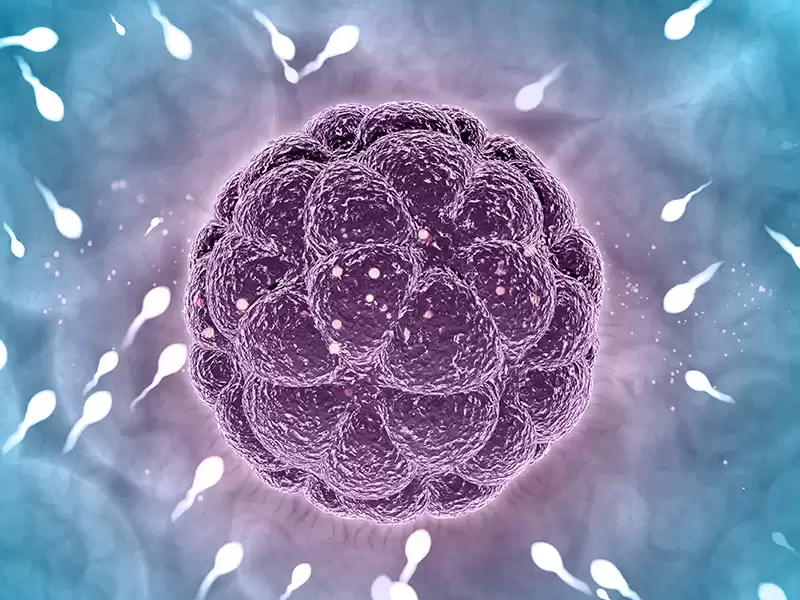
A 30-year-old woman has a 20 per cent chance of conceiving naturally in the first month. In other words, one out of every 5 women can get pregnant without treatment at the end of the first month. After 6 months, this rate is around 75%. Among the treatments applied to women who cannot get pregnant naturally, the one with the highest chance of success is ‘in vitro fertilisation’.
Read more
Failure to achieve pregnancy in at least 3 IVF applications or failure to achieve pregnancy despite the transfer of 10 or more embryos is called ‘recurrent IVF failure’. However, considering the developing technology, today we are talking about recurrent failure when pregnancy is not achieved despite the transfer of 5 or more cleavage stage (2nd or 3rd stage) or 3 or more blastocyst stage embryos.
Read more
With Embryo Transfer, the embryos grown in incubators 2-6 days after the egg collection process are introduced into the uterus through a thin catheter under sterile conditions, without the patient being anesthetized.
Read more
"The egg freezing process is applied recently due to the advancing age or the possibility of ovarian damage, in order to freeze women's eggs and use them later for in vitro fertilization. It is a method preferred by women who postpone having children due to any illness or who plan their careers and want to become mothers at an older age."
Read more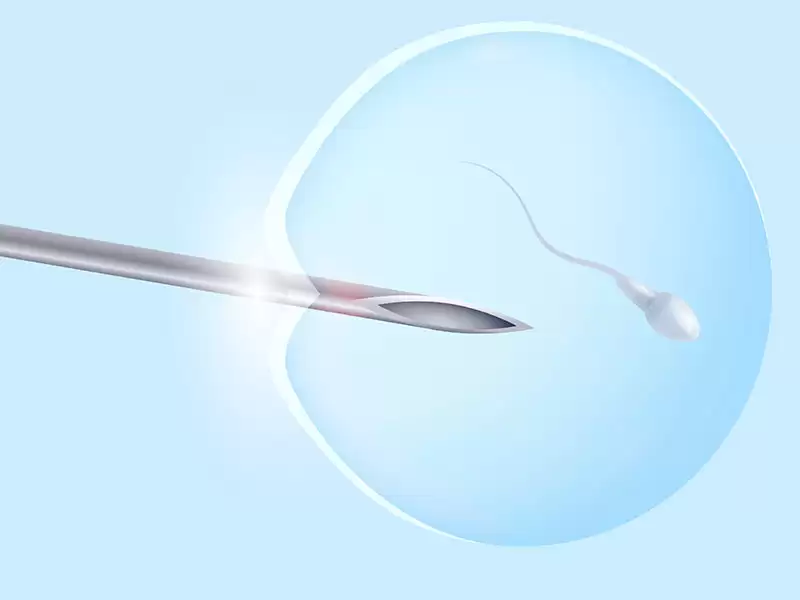
The microinjection method (Intracytoplasmic Sperm Injection, ICSI) is a method frequently used in IVF treatment thanks to its high success rate. It is known that the microinjection method is 80% successful. The microinjection method is used in the fertilisation phase of IVF treatment. In classical IVF treatment, egg and sperm are expected to fertilise spontaneously. When the microinjection method is used, this process is carried out by injecting the sperm into the egg. It is especially applied in cases where sperm is scarce. Microinjection isthe most successful method in IVF treatment .
Read moreProf. Dr. Cigdem Yayla Abide
She was born in 1980 in Zonguldak. She completed her secondary and high school education at TED Zonguldak College with a degree and with her outstanding success in the university exam, she was entitled to receive medical education in English at Marmara University Faculty of Medicine. This is how she took the first step towards becoming the obstetrician and gynecologist she dreamed of. After graduating from the faculty of medicine, she obtained a high degree in the medical specialization exam (TUS) in 2007 and started to specialize in Zeynep Kamil Gynecology and Pediatrics Training and Research Hospital, which was her first choice. By working for many years in one of Turkey's leading, specialist hospitals; She has taken part in countless births and in the treatment of thousands of diseases. She worked at Nallıhan State Hospital between 2011 and 2014 in order to fulfill her obligatory duty of public service as a specialist physician.



